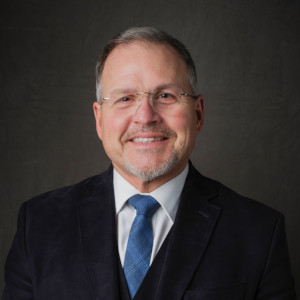Words and Thoughts of President Alan R. Miciak
Higher Education as Value Generator

America’s future depends on a new kind of liberal arts college.
We know a few things about high-school age young women and men who plan to attend college within the next four years and the employers eagerly awaiting their graduation.
- Most will pursue careers — from accounting to zoology — that will be reconfigured by a revolution in artificial intelligence, data and machine learning.
- Many feel pressure to pursue a career-focused major — or multiple majors — and to avoid the rigor imposed by a traditional core curriculum.
- Employers have intensified their search and increased their bounty for those rare polymaths who bring a combination of agile/critical thinking and technical knowledge.
America’s liberal arts colleges stand at a crossroads. Our faculty can and must play a vital role in preparing the next generation to solve the world’s greatest challenges. We know that such challenges — climate, hunger, justice, equity — defy academic discipline boundaries.
Students seek a more elastic academic and co-curricular preparation. They want the mentoring of traditional and clinical faculty, industry executives in residence, and alumni advisors. We must encourage students to network broadly and draw on the best thinking about their topic, wherever they can find it.
______
At the very moment that young people ask more of us, private colleges everywhere, including John Carroll University, face pandemic-related revenue declines and a looming enrollment cliff that will see the number of college-age young people in the United States nosedive starting in 2025.
The pandemic has forced strategic clarity. A (2020) Gallup Survey of College and University Business Officers found that among private, nonprofit bachelor’s schools, 74 percent report plans to tighten its focus, reset for growth or make difficult but transformative changes in its core structure and operations.
At John Carroll University, we will identify and dedicate every possible resource to invest back into the academic and co-curricular student experience so that future graduates can become asset creators and value generators. This includes imagining a new set of integrative academic programs aimed at combining the best of liberal arts formation and professional application.
The post-pandemic economy will require a far different translation of knowledge to judgement. That holds true whether you’re hiring or working for a Silicon Prairie fintech start-up such as CardX, a Cleveland Clinic biotech spinoff like Juventas Therapeutics, or one of Pittsburgh’s (Aptiv, Argo AI, Aurora) autonomous vehicle leaders.
Future biology and pre-med students will combine basic science with advanced informatics. Future accounting, supply chain, and finance majors will learn to leverage machine-learning and critical business thinking.
Schools such as John Carroll University face difficult choices ahead. The “ivory tower” age of liberal arts education has long since expired, though habit has many holding tight to its once-unwavering traditions.
Prospective students and families want and deserve a far more dynamic product, less bound by departmental walls and academic tradition. Students recognize that in order to claim the catalytic difference that an education such as ours can offer, they must network widely, risk failure, and find in their academic leaders a model of intellectual curiosity, professional relevance and mobility, and personal resiliency. In short, they’re shopping for a four-year college experience that “robot-proofs” them against mighty forces of change (technological, economic, political, social, environmental).
If we miss this opportunity, it will be to the detriment of not just the fortunate few who attend college, but to the entire American experiment. It’s our time to demonstrate that Jesuit Education has persisted for 500 years not in spite of, but because of our ability to change and adapt to pursue the changing world.
Adaptation will require administrators and faculty members to model for students the inherent faith and optimism of learning; and for all of us to sustain ourselves on some less tradition-bound shore of existence; less in need of everything we think keeps us safe and comfortable.

